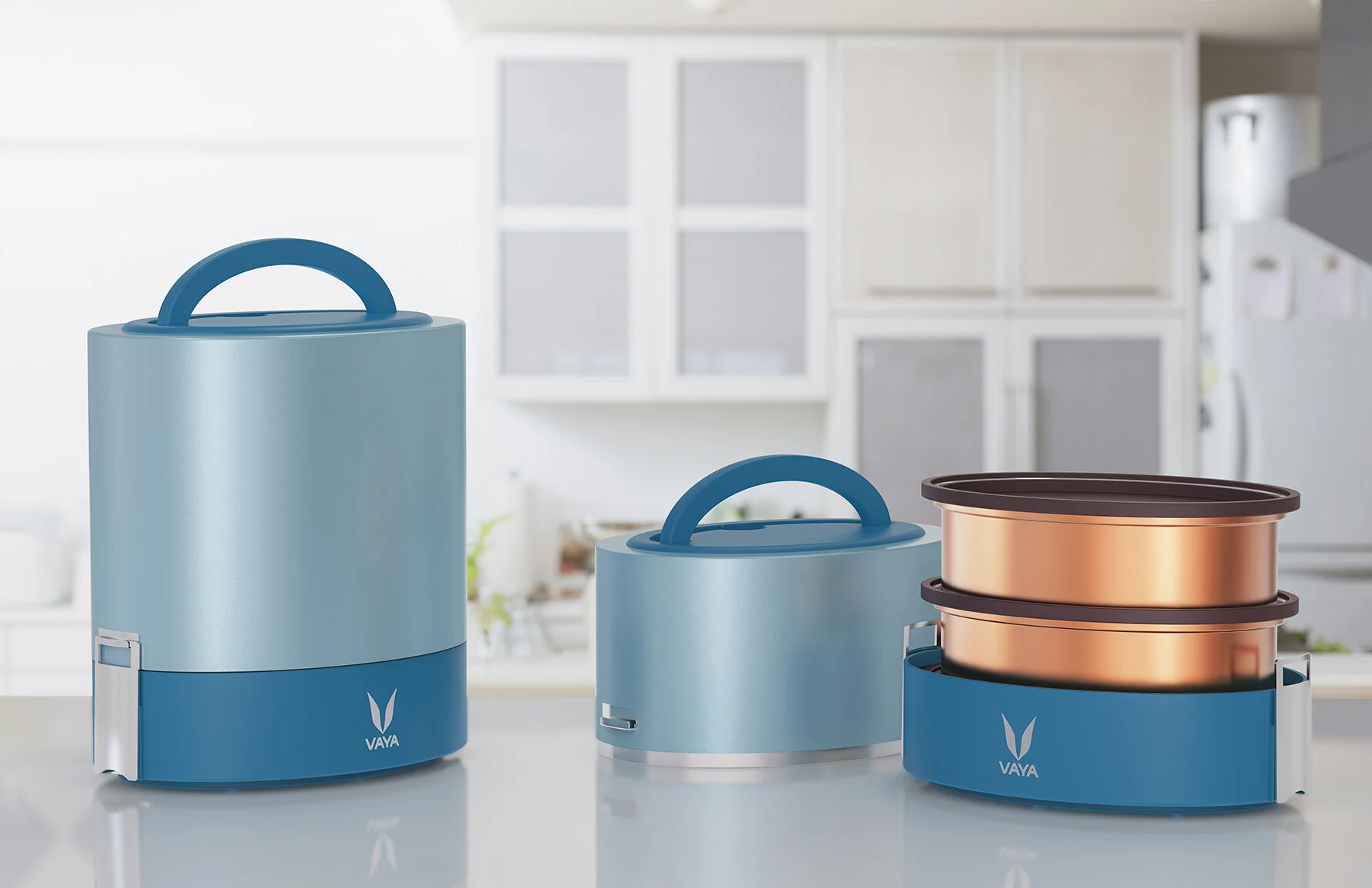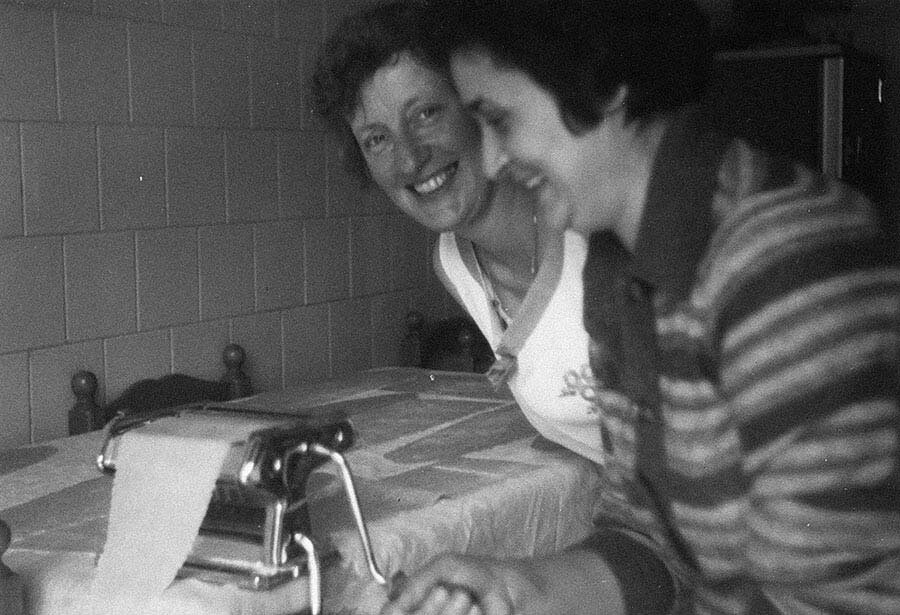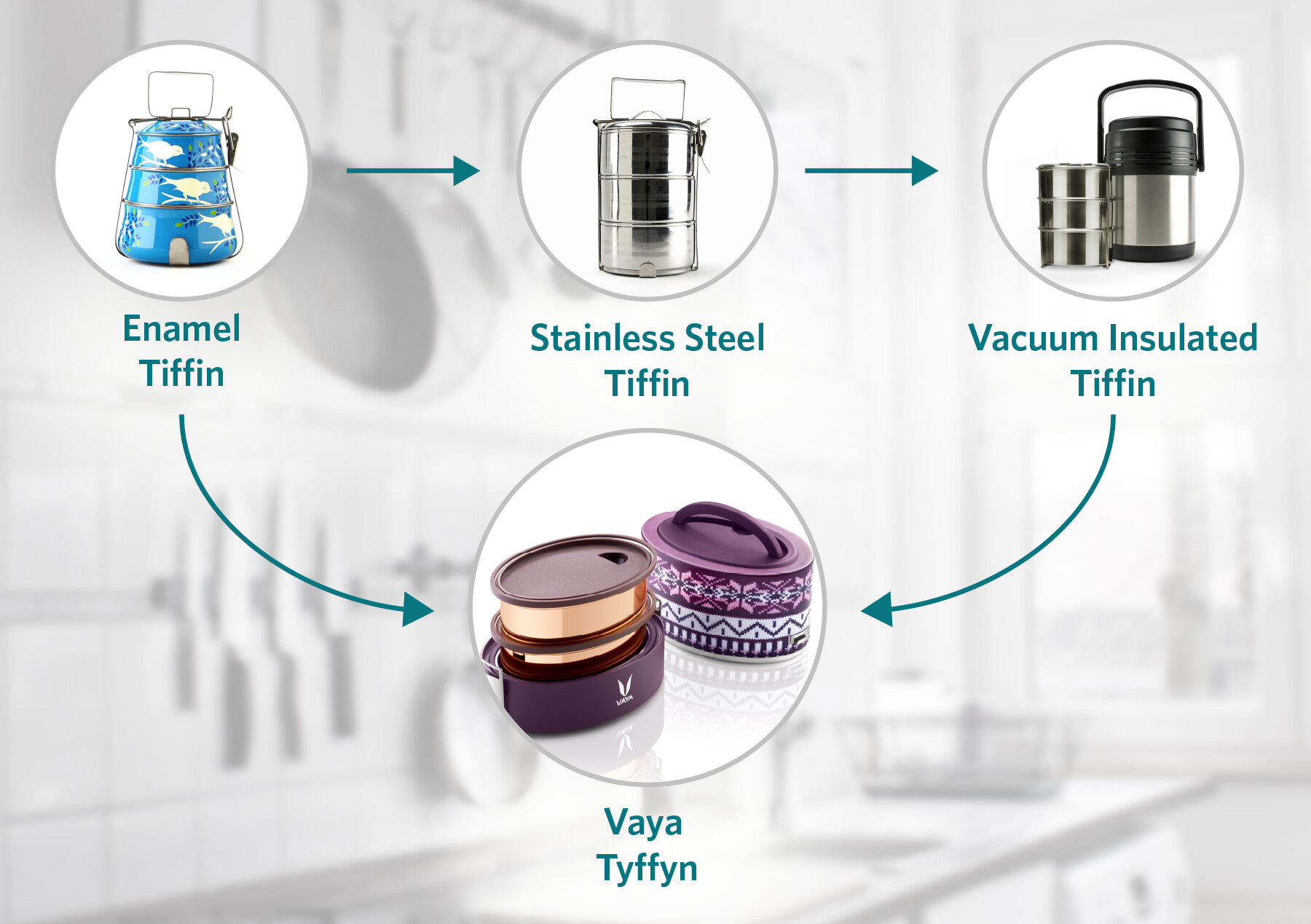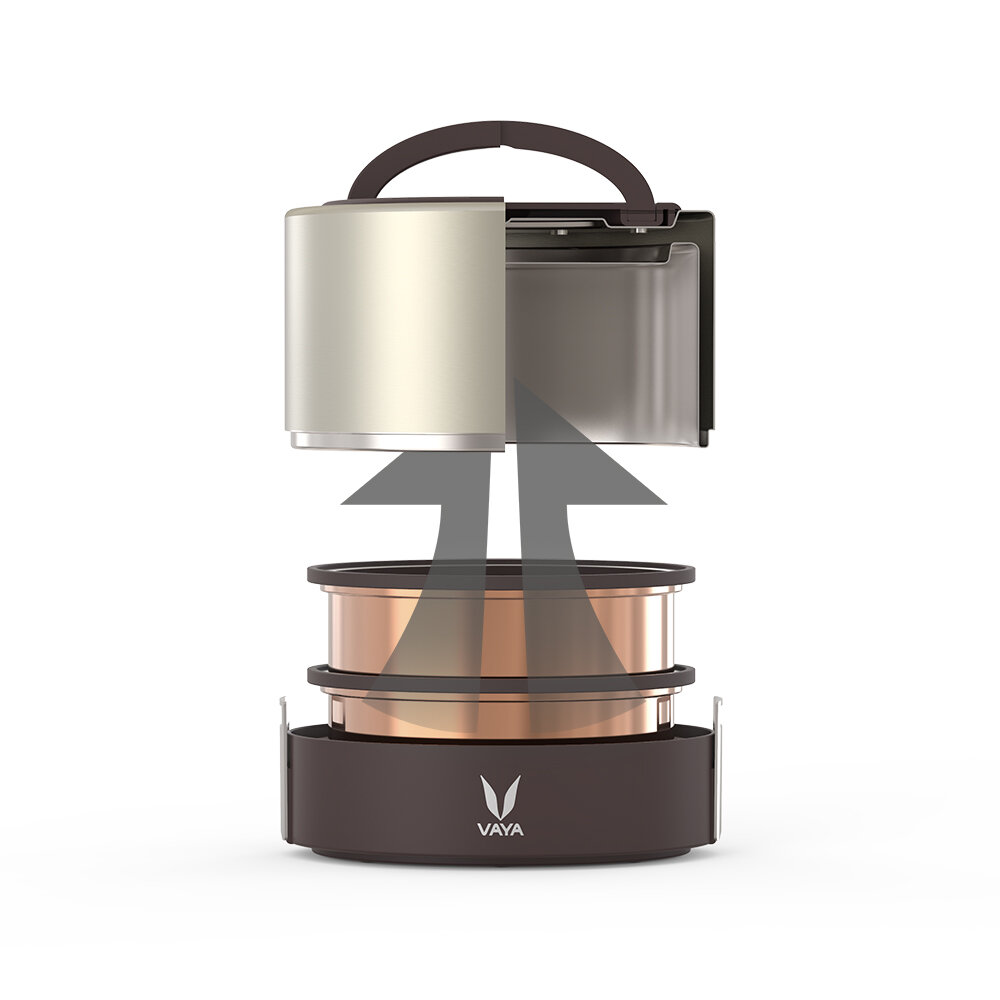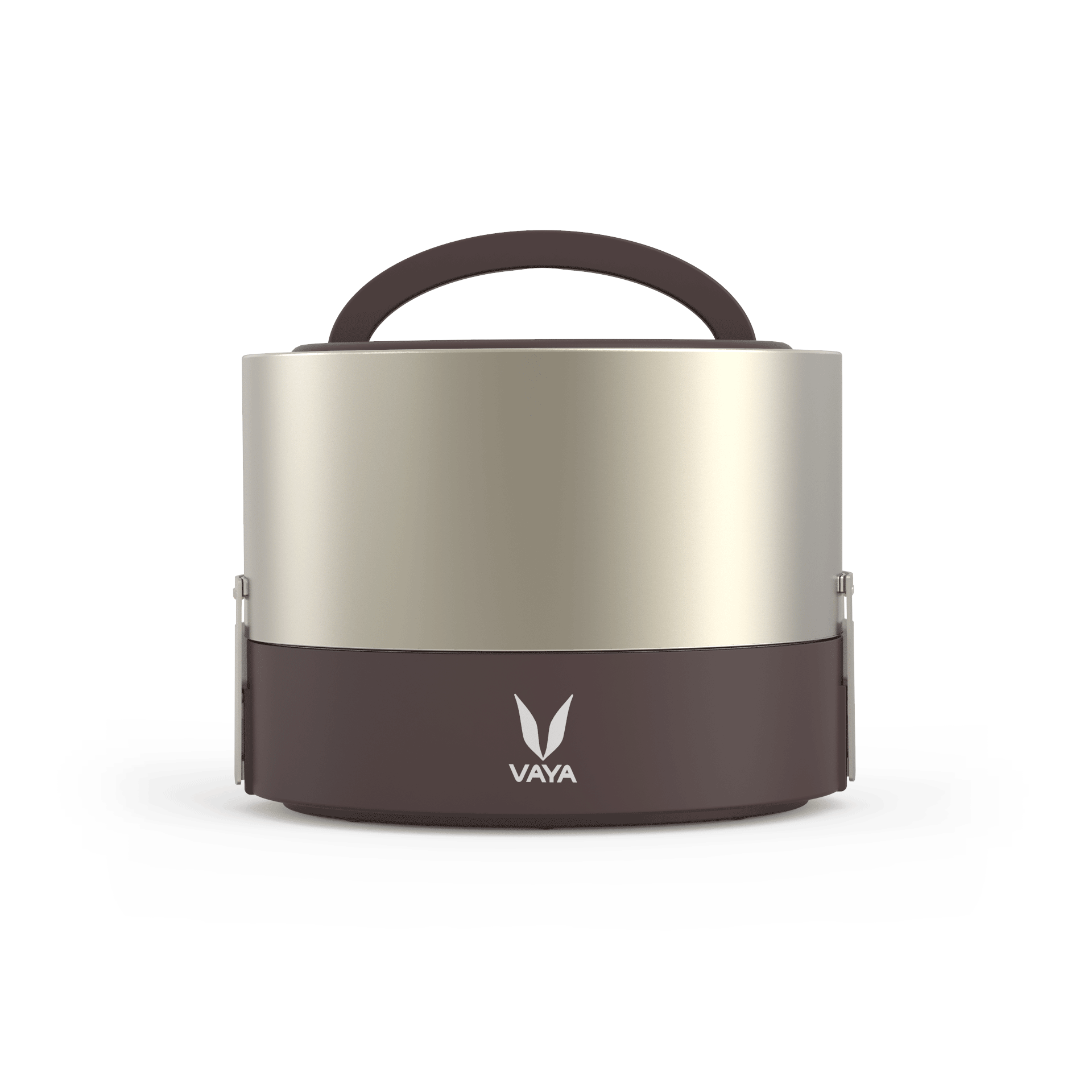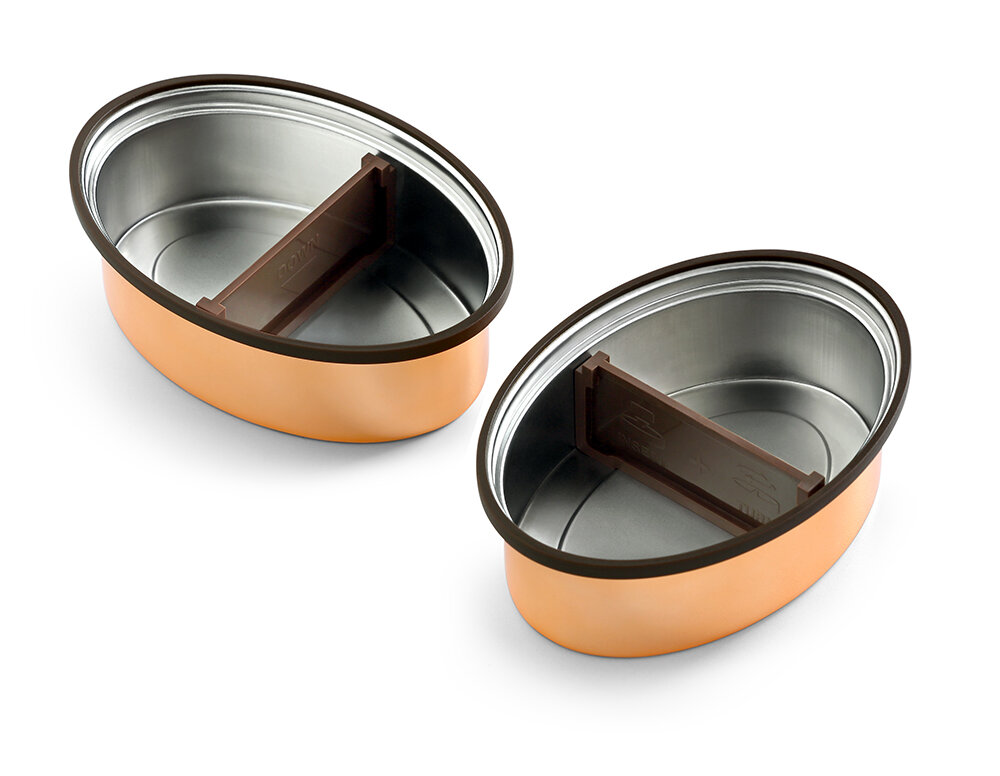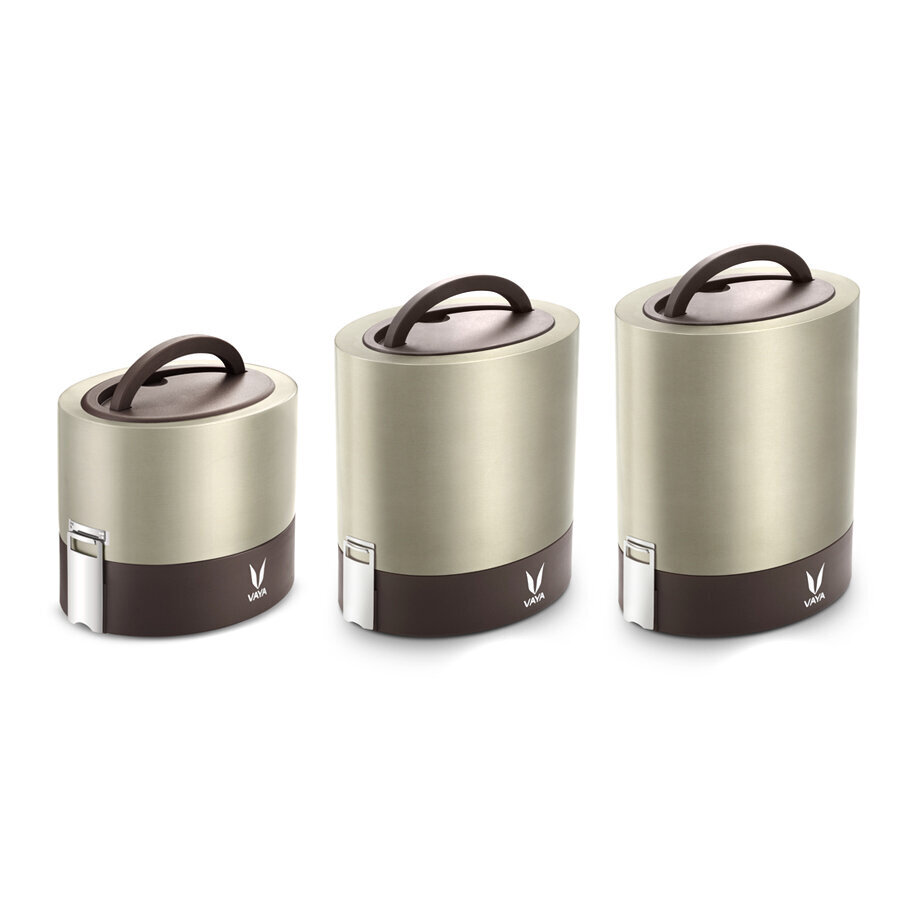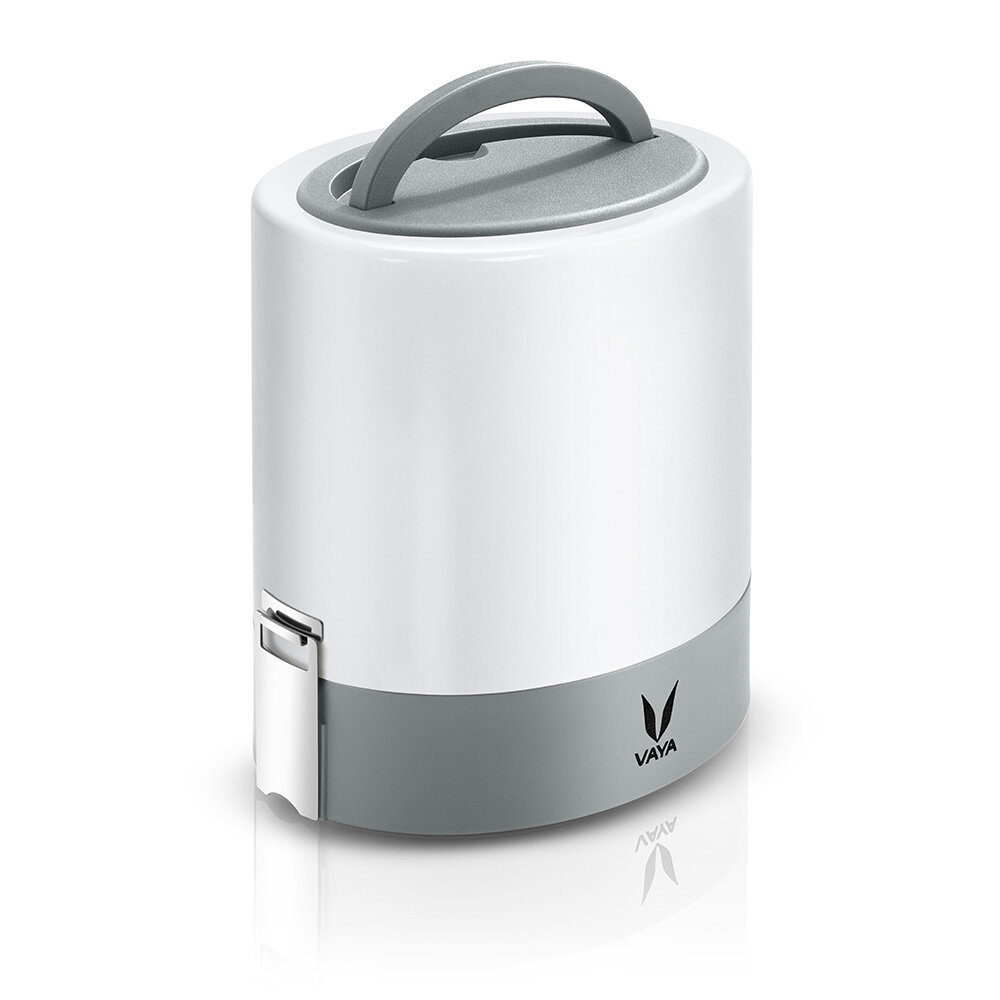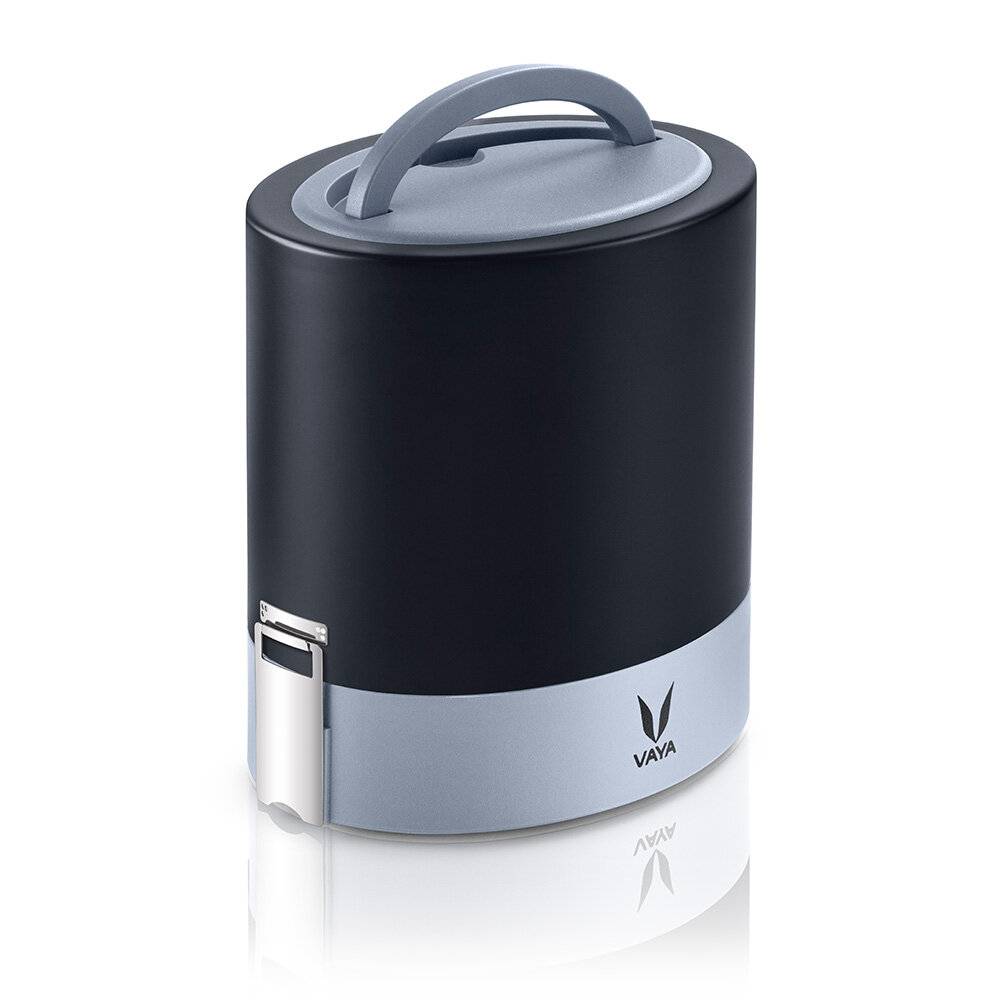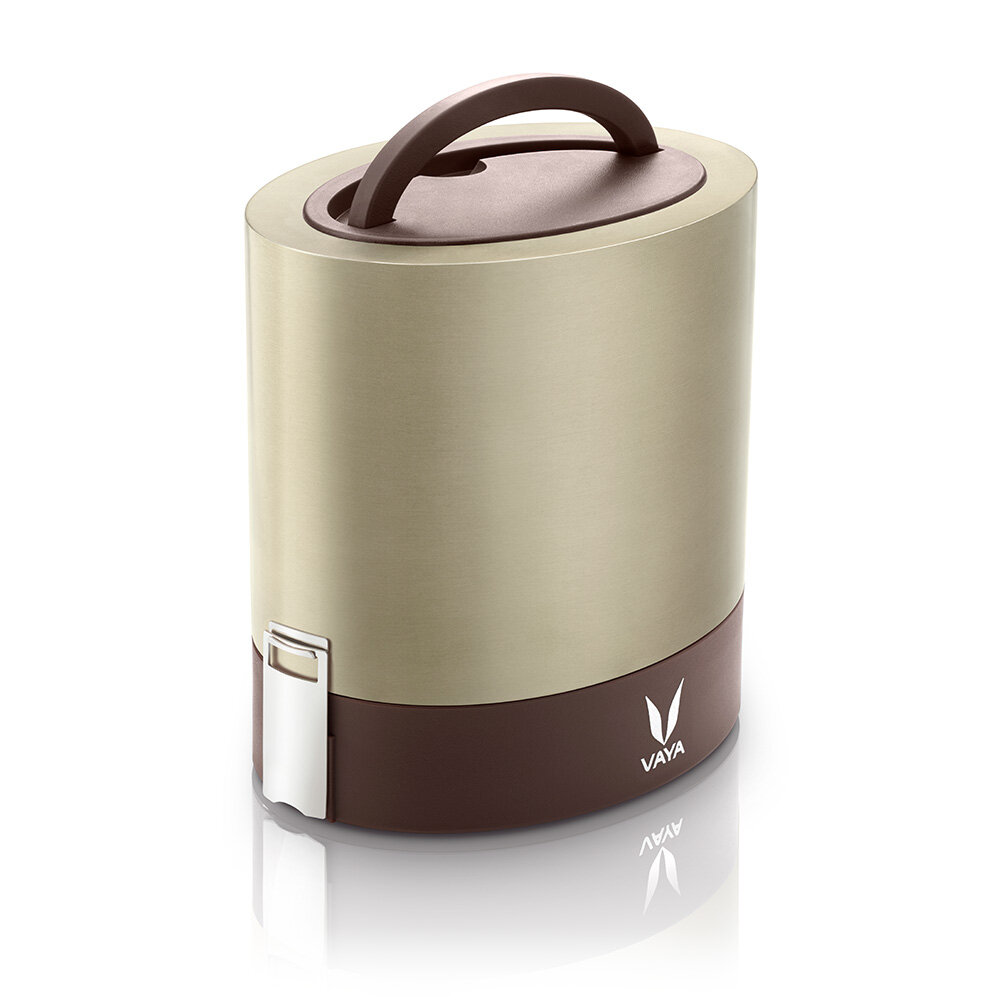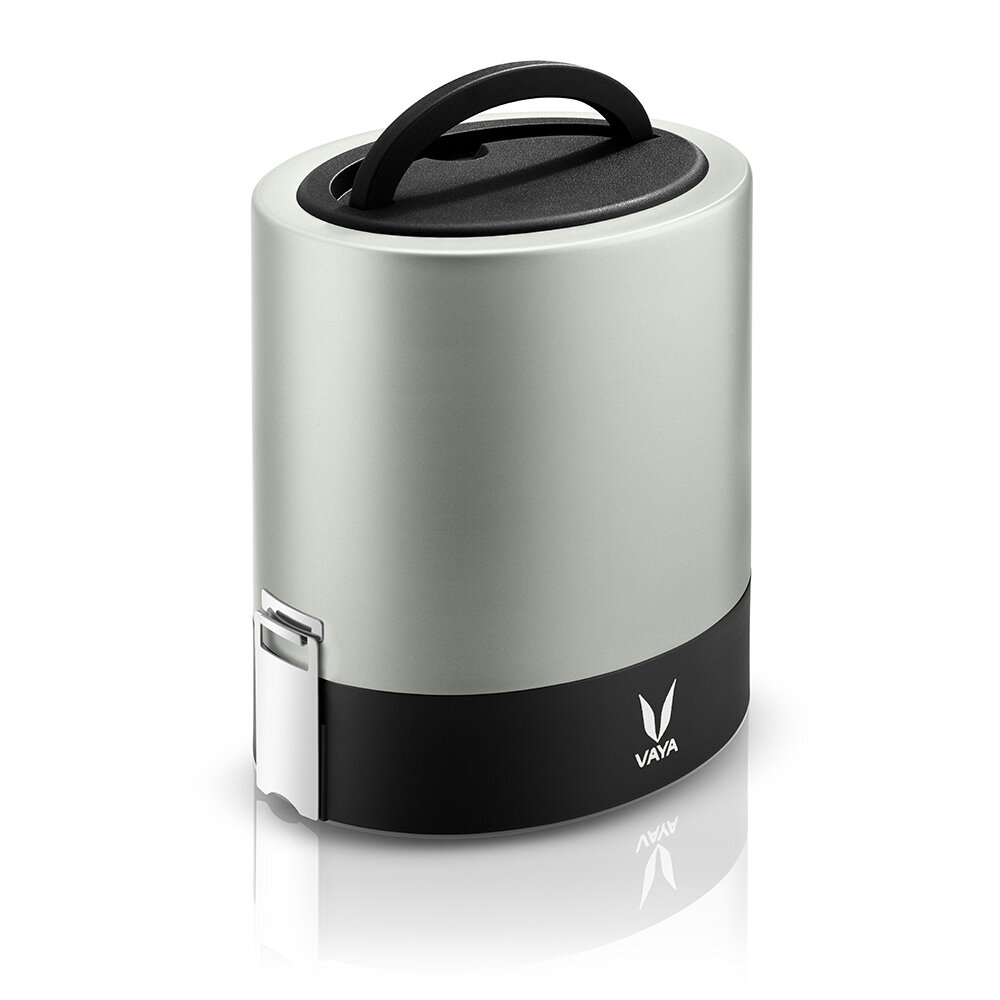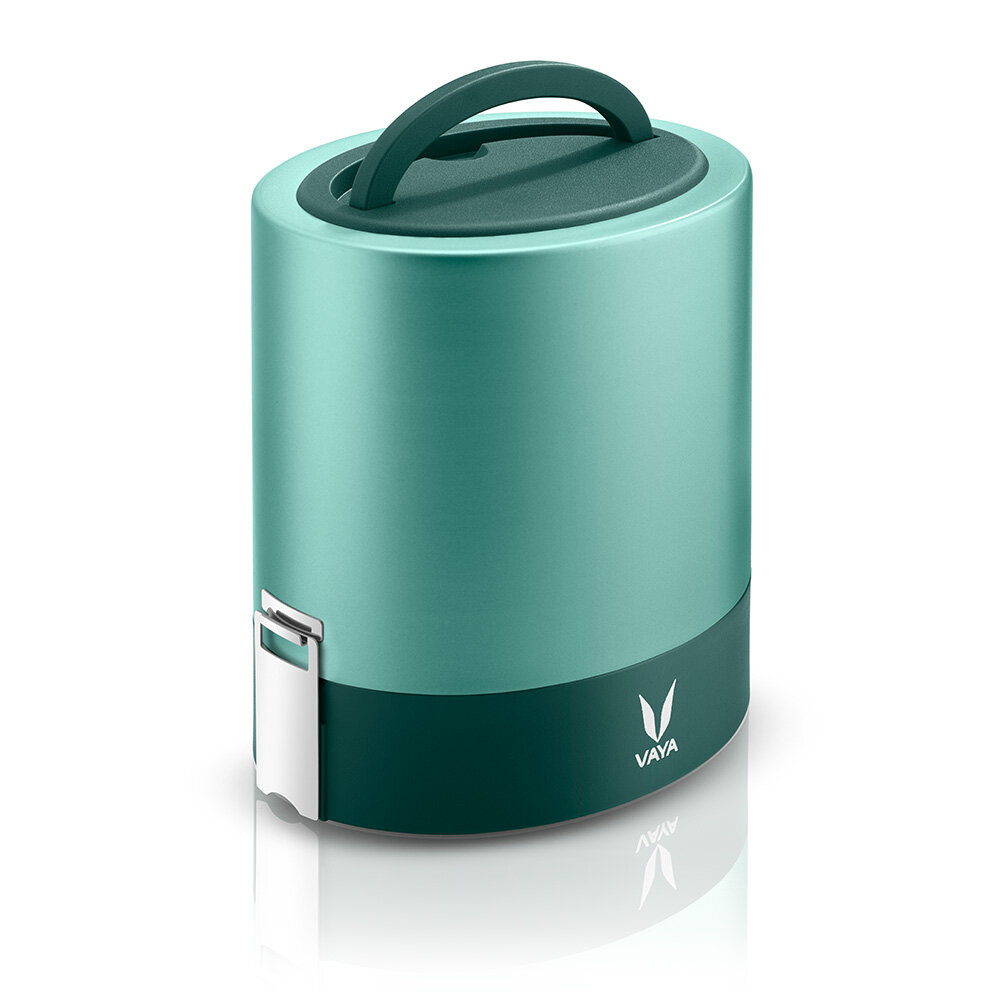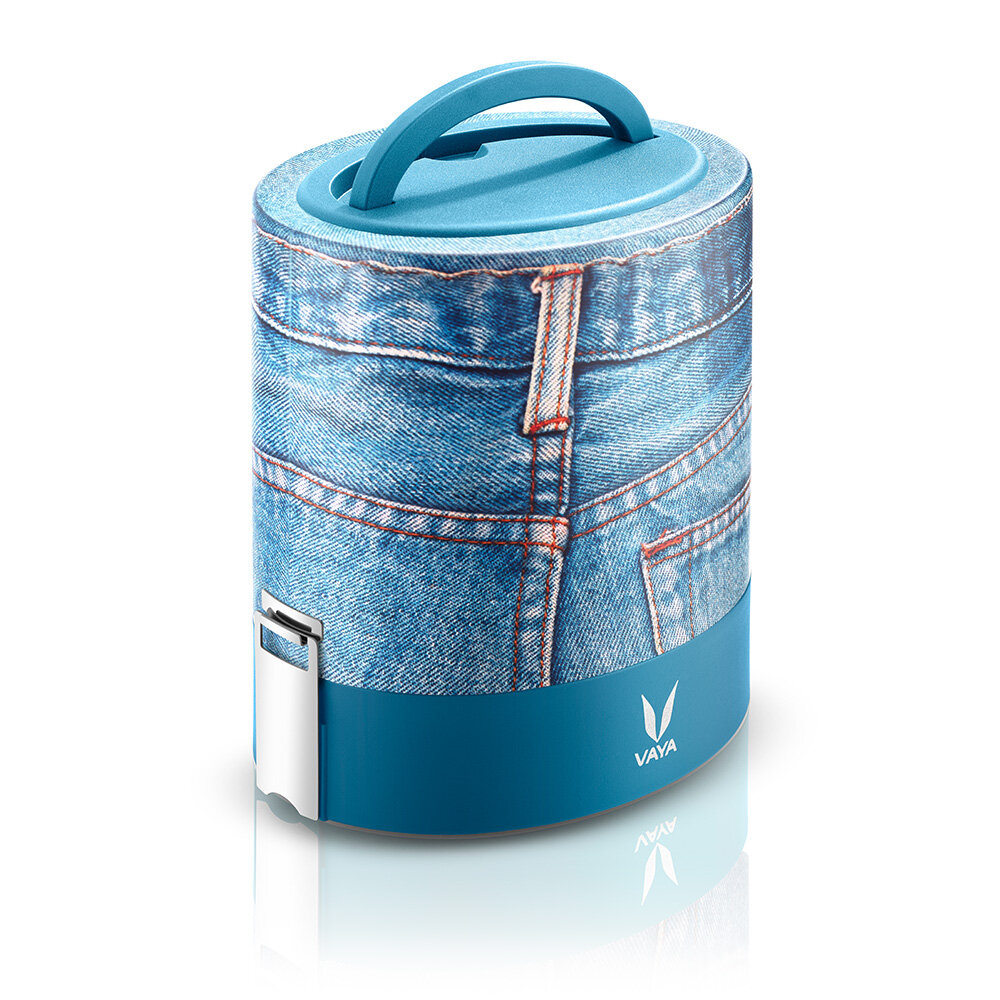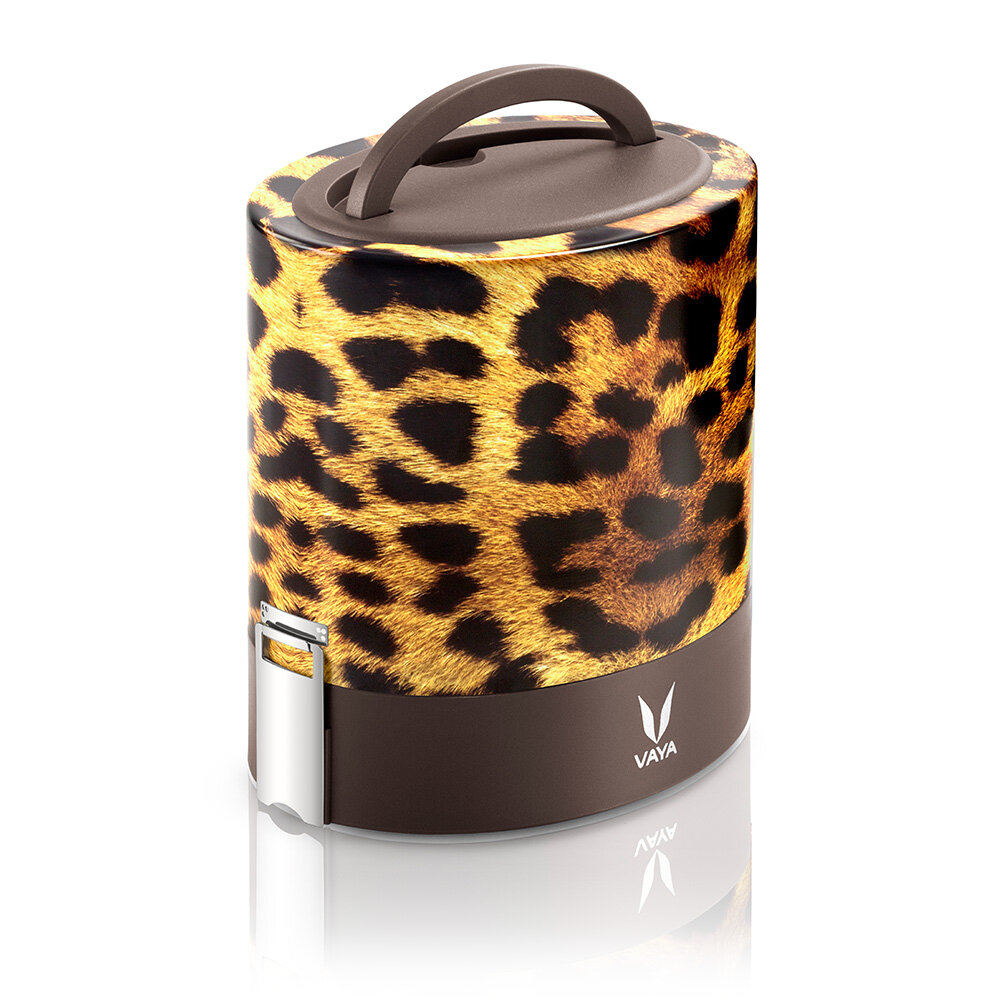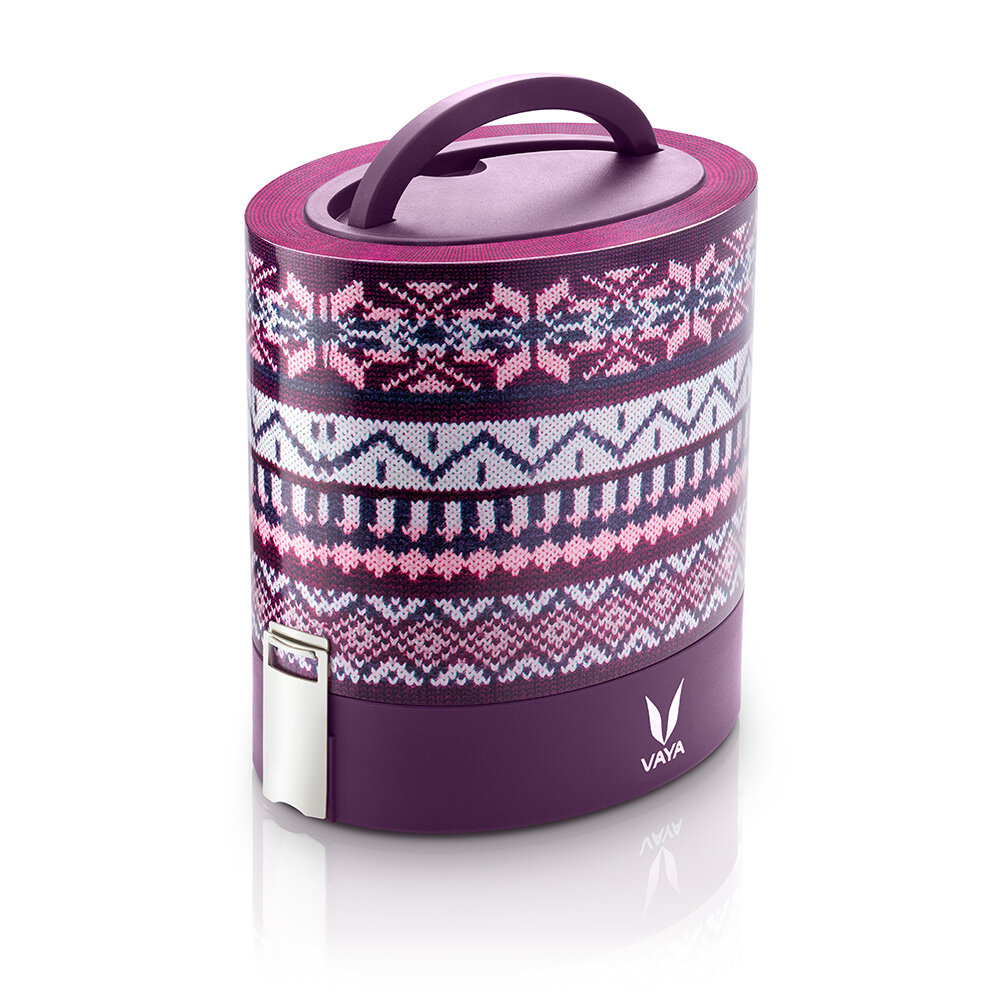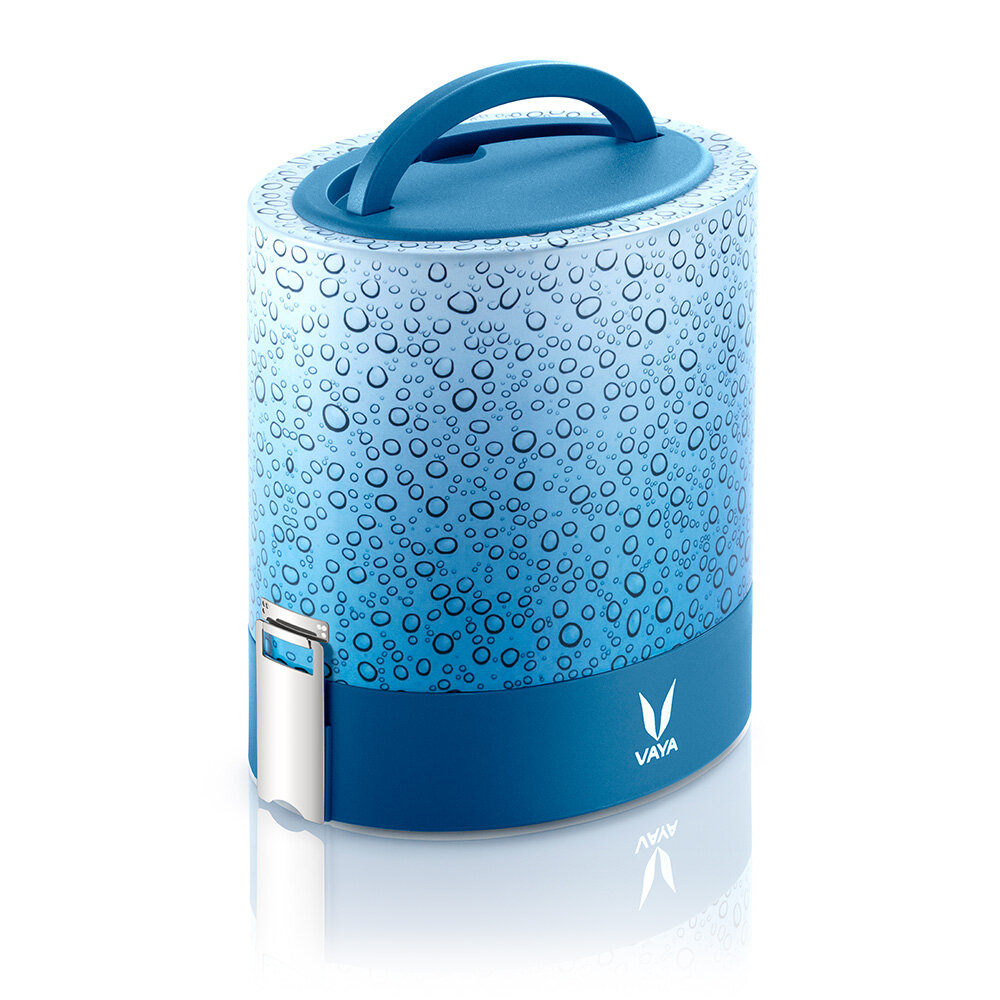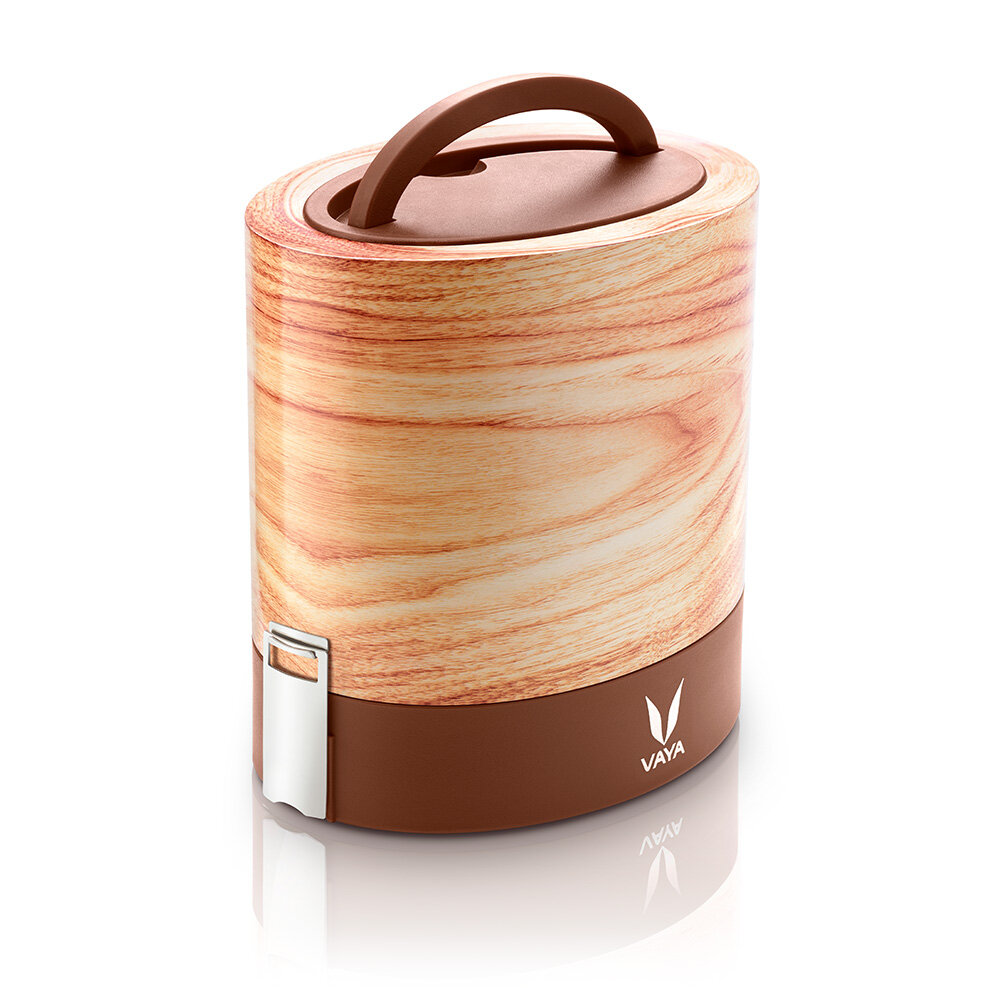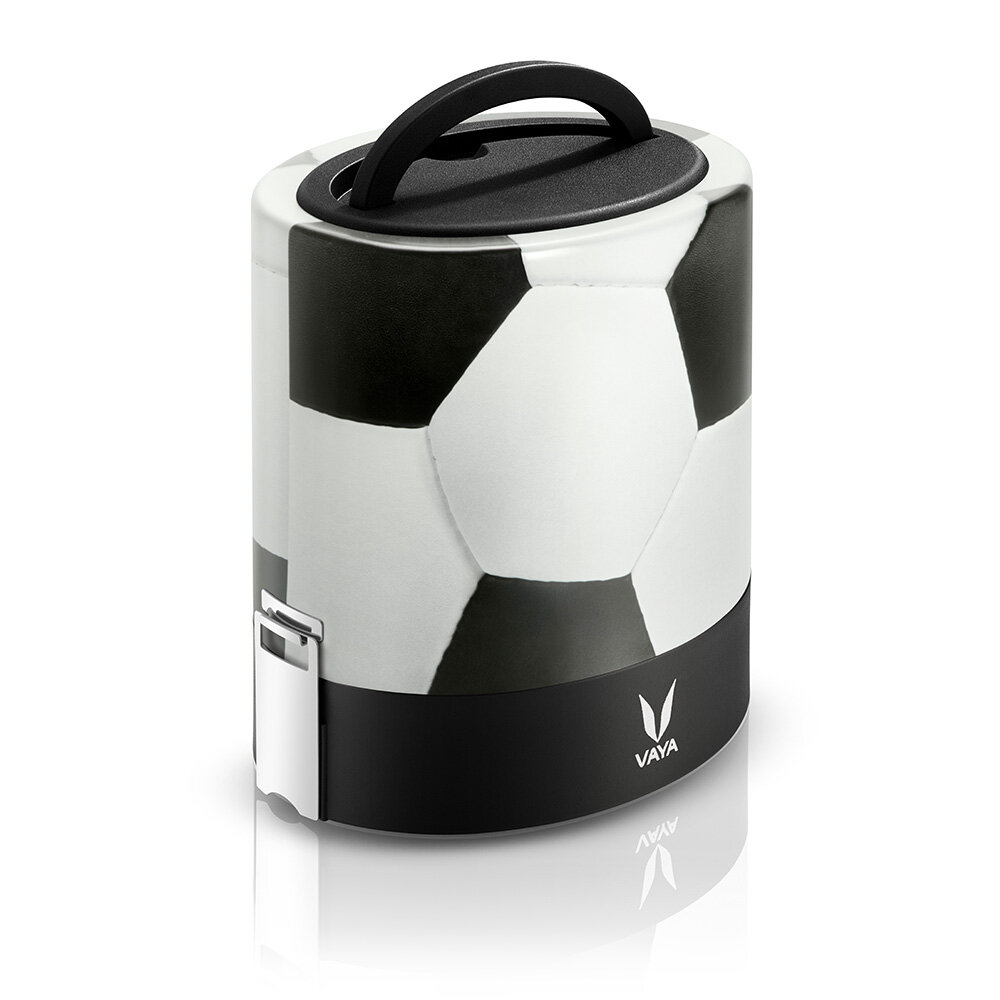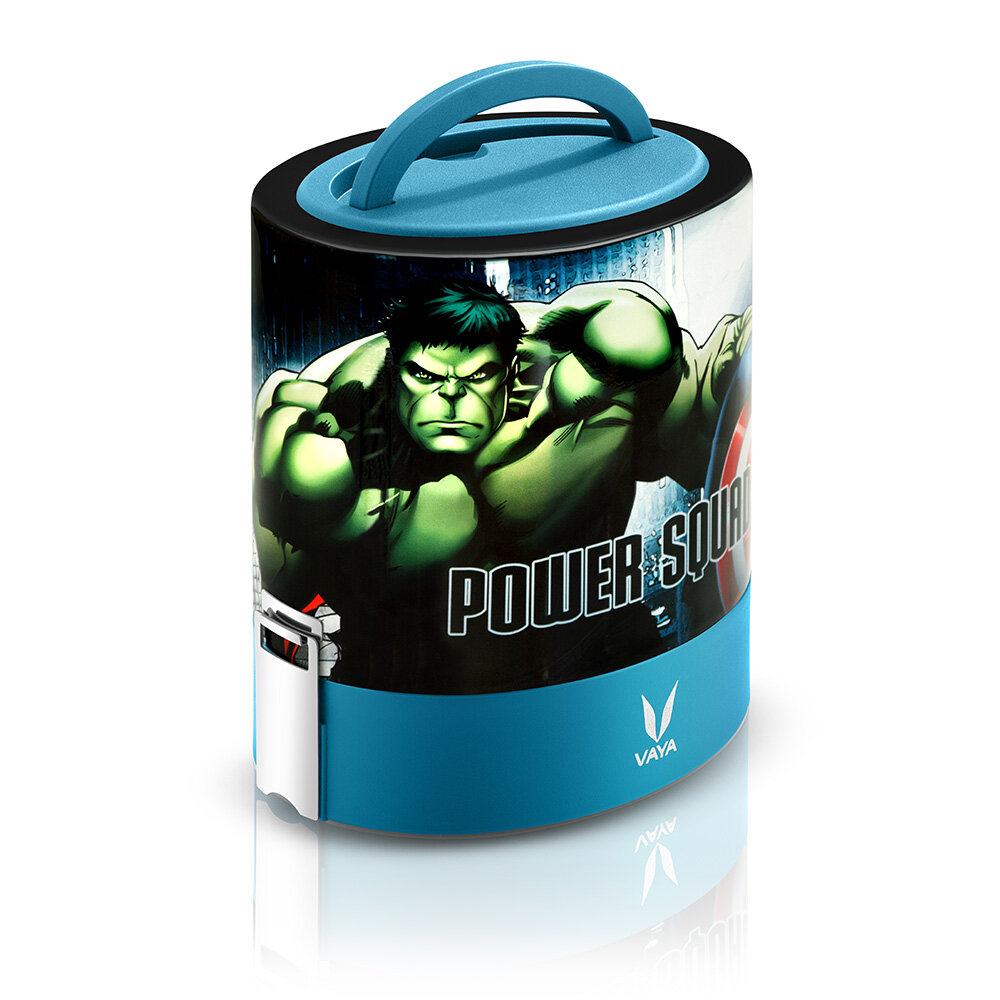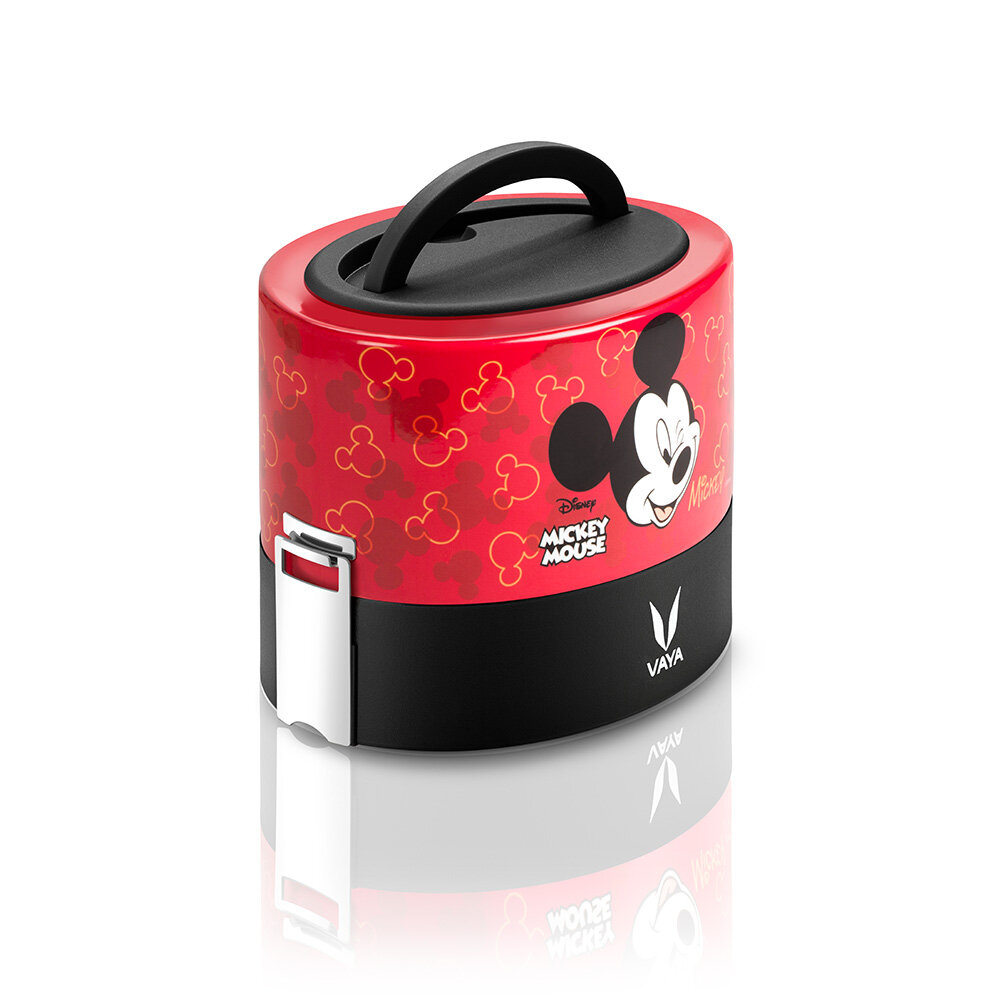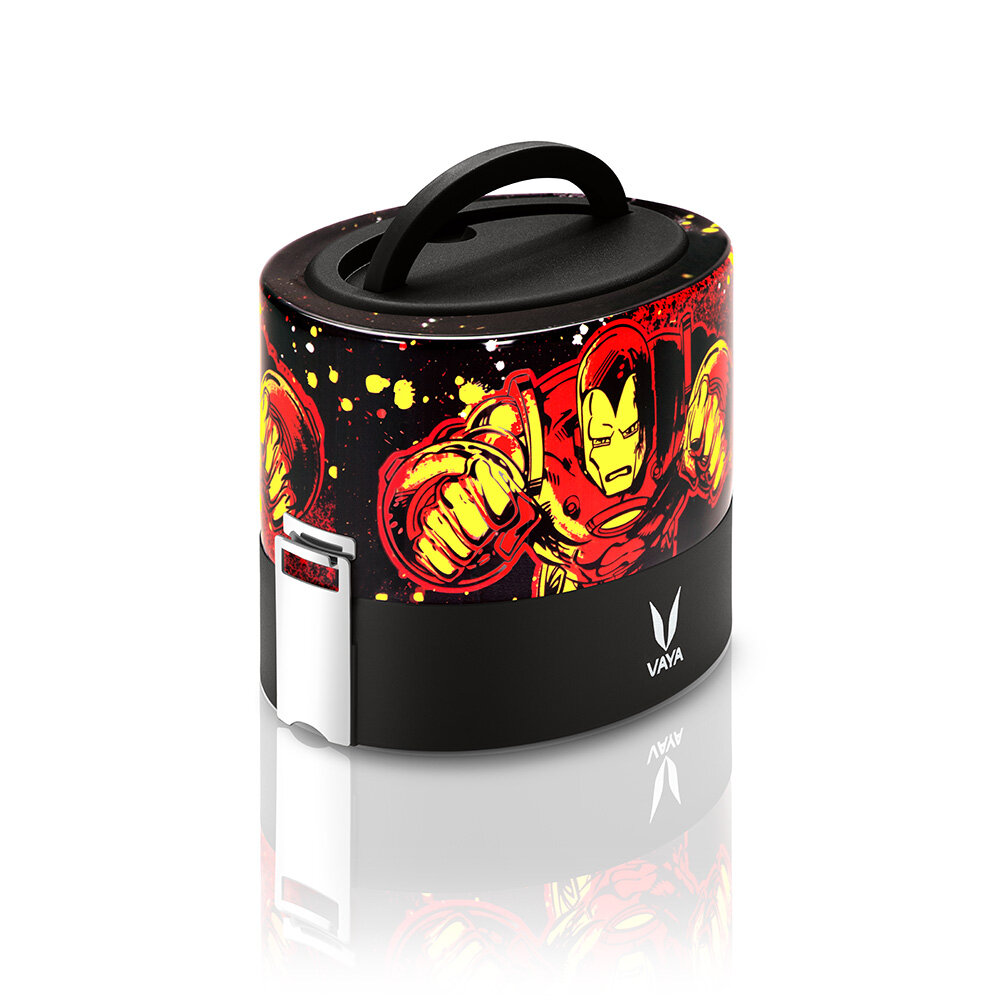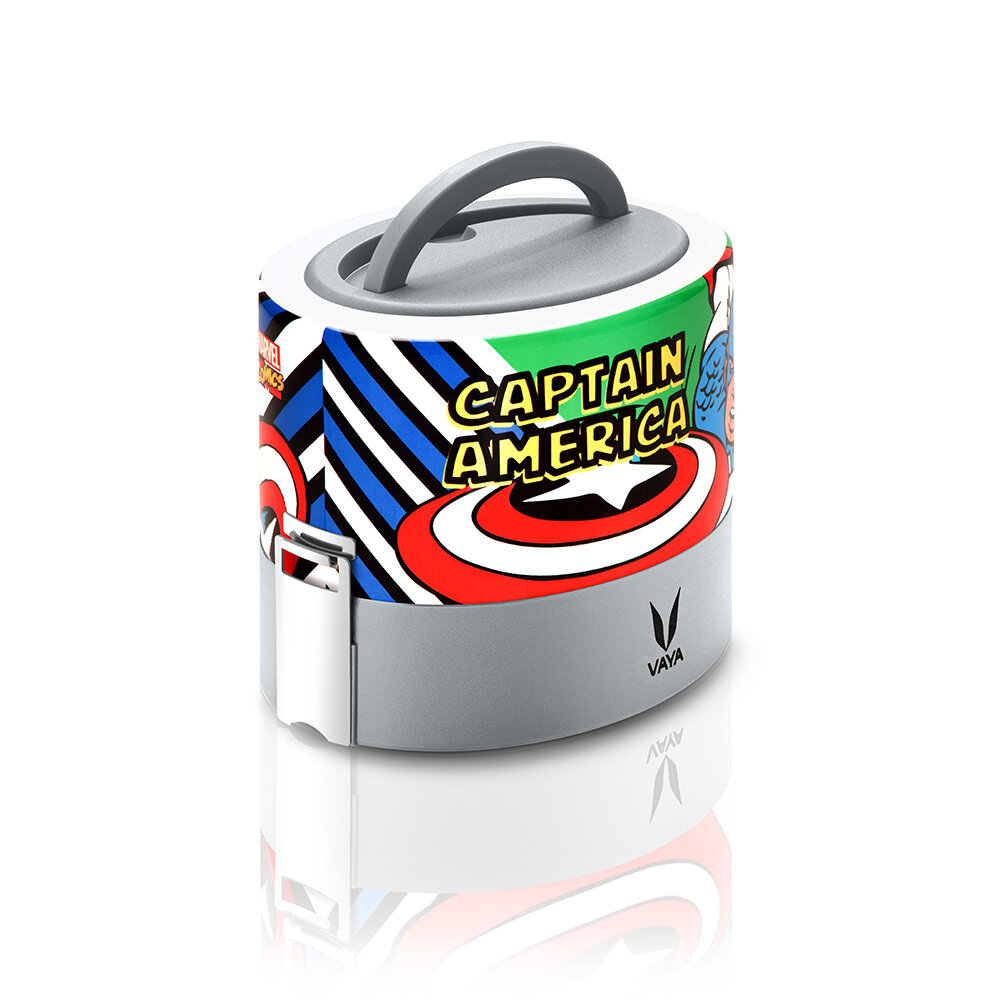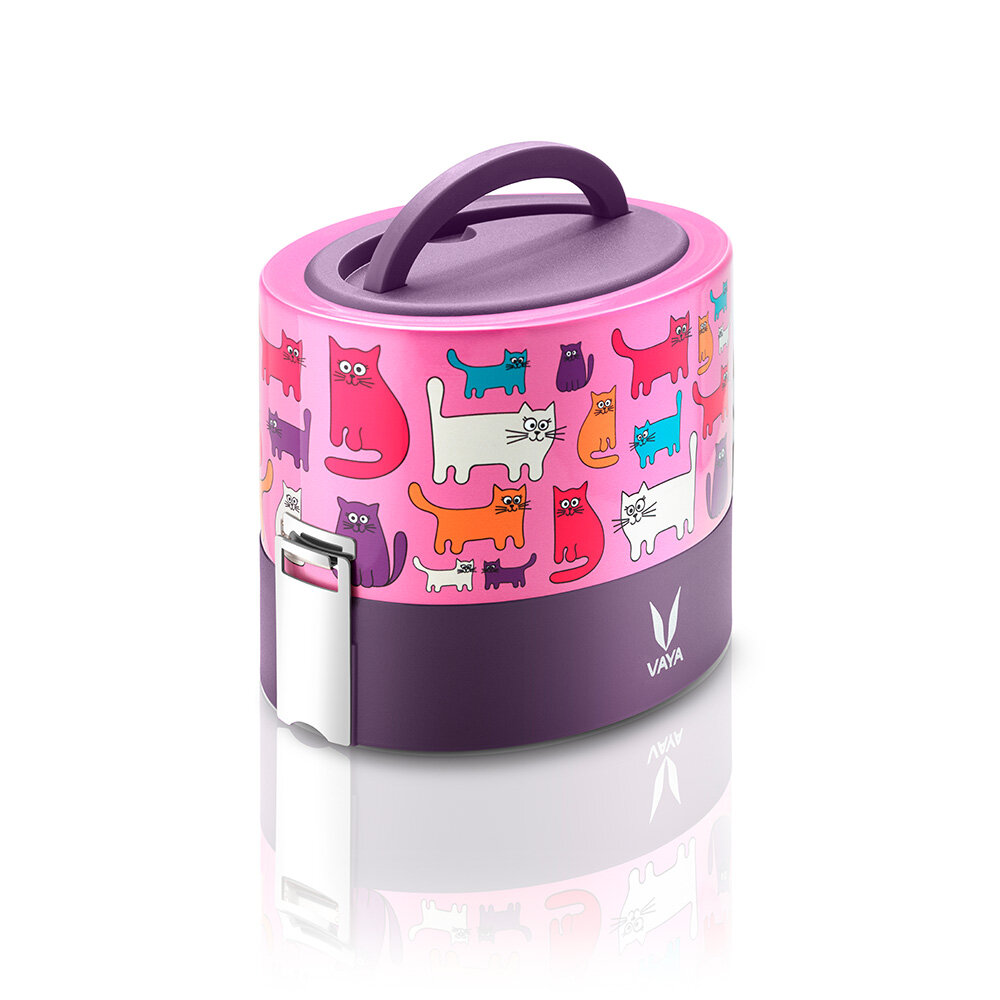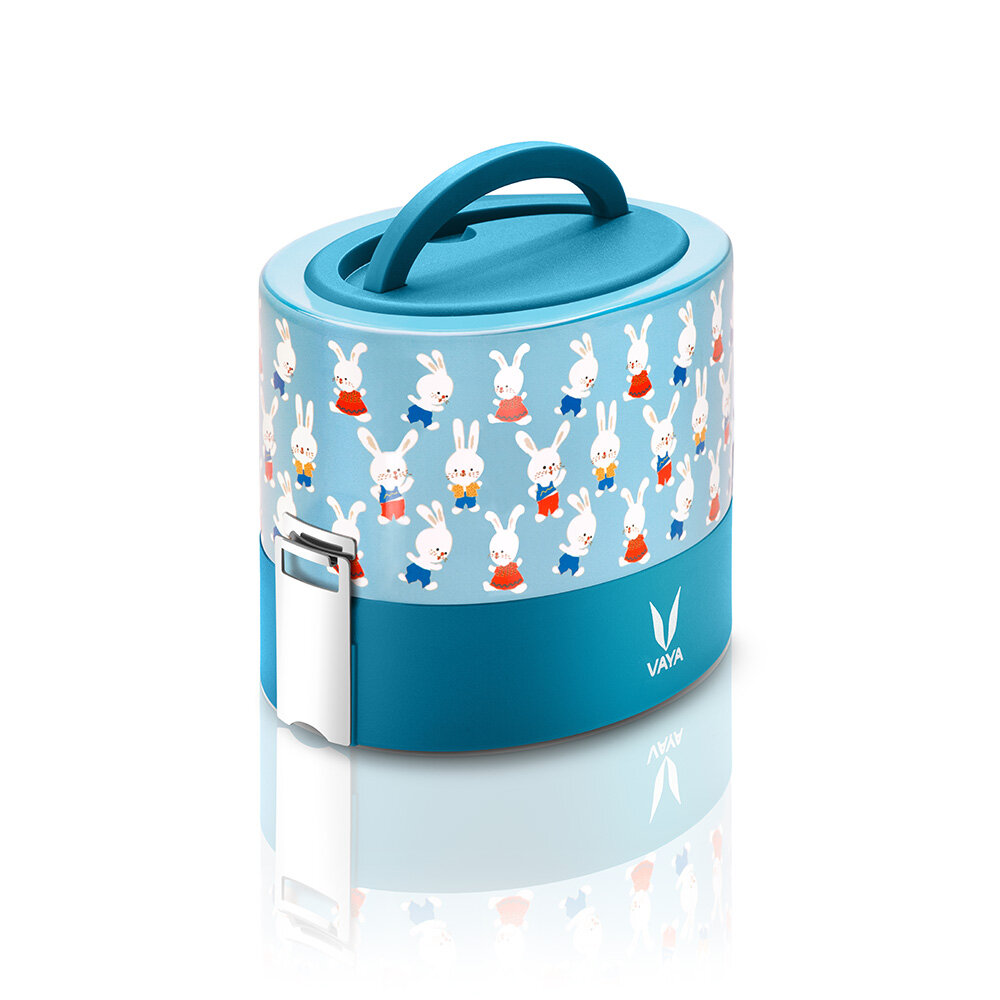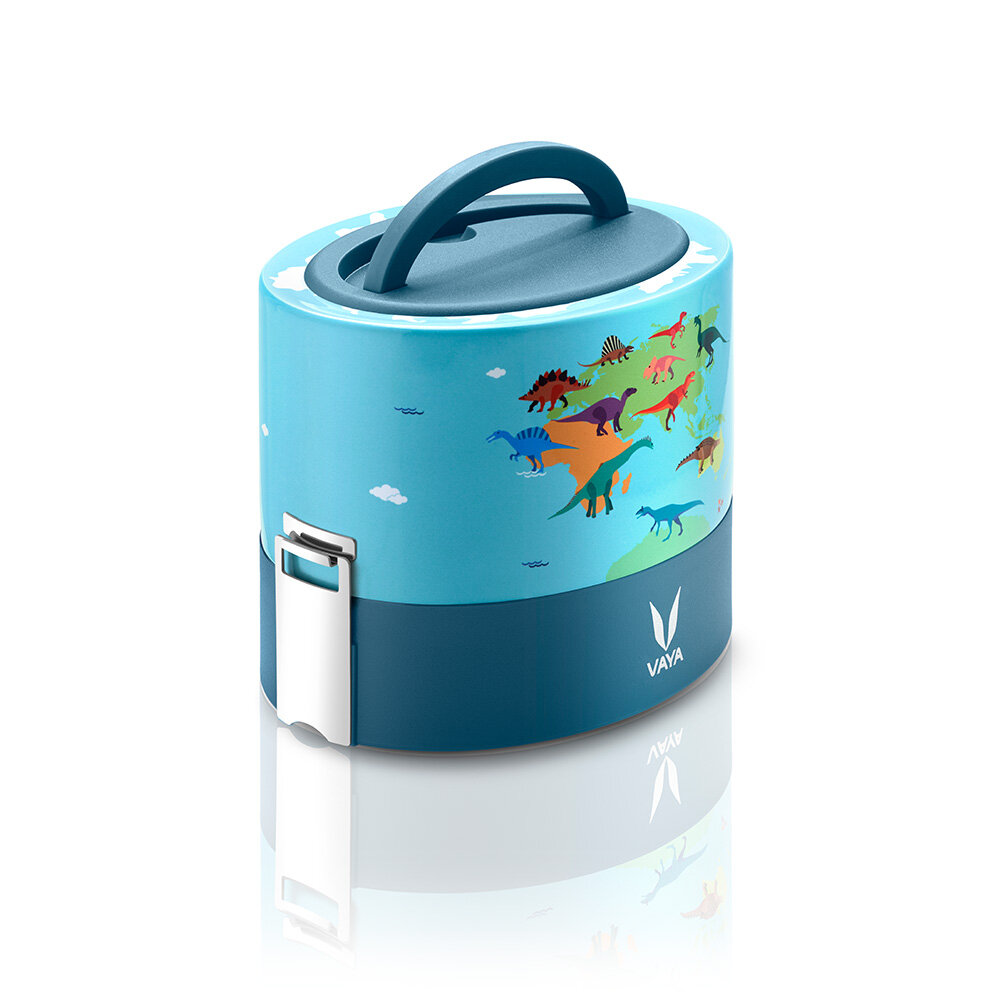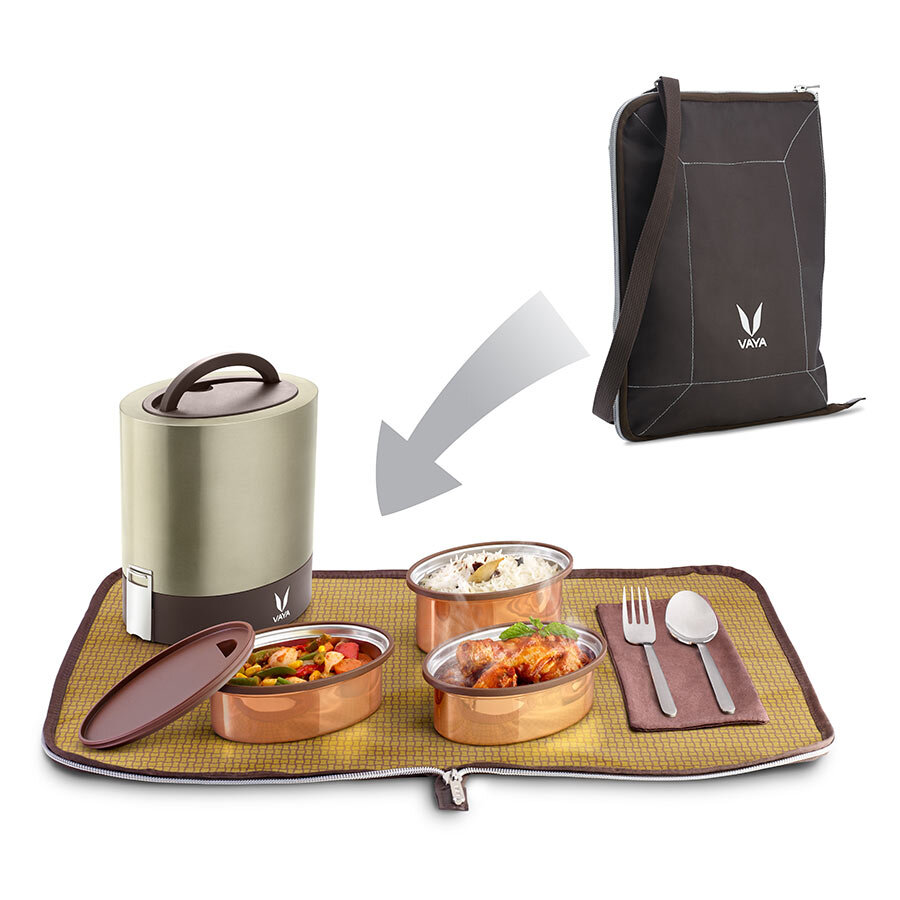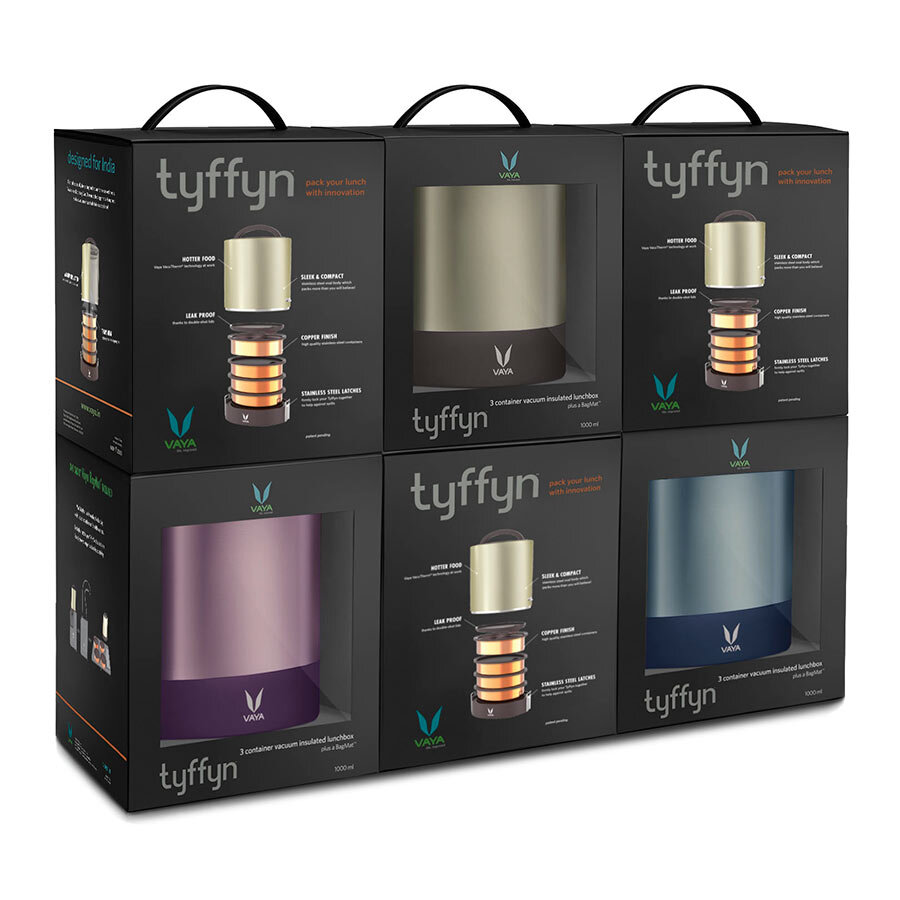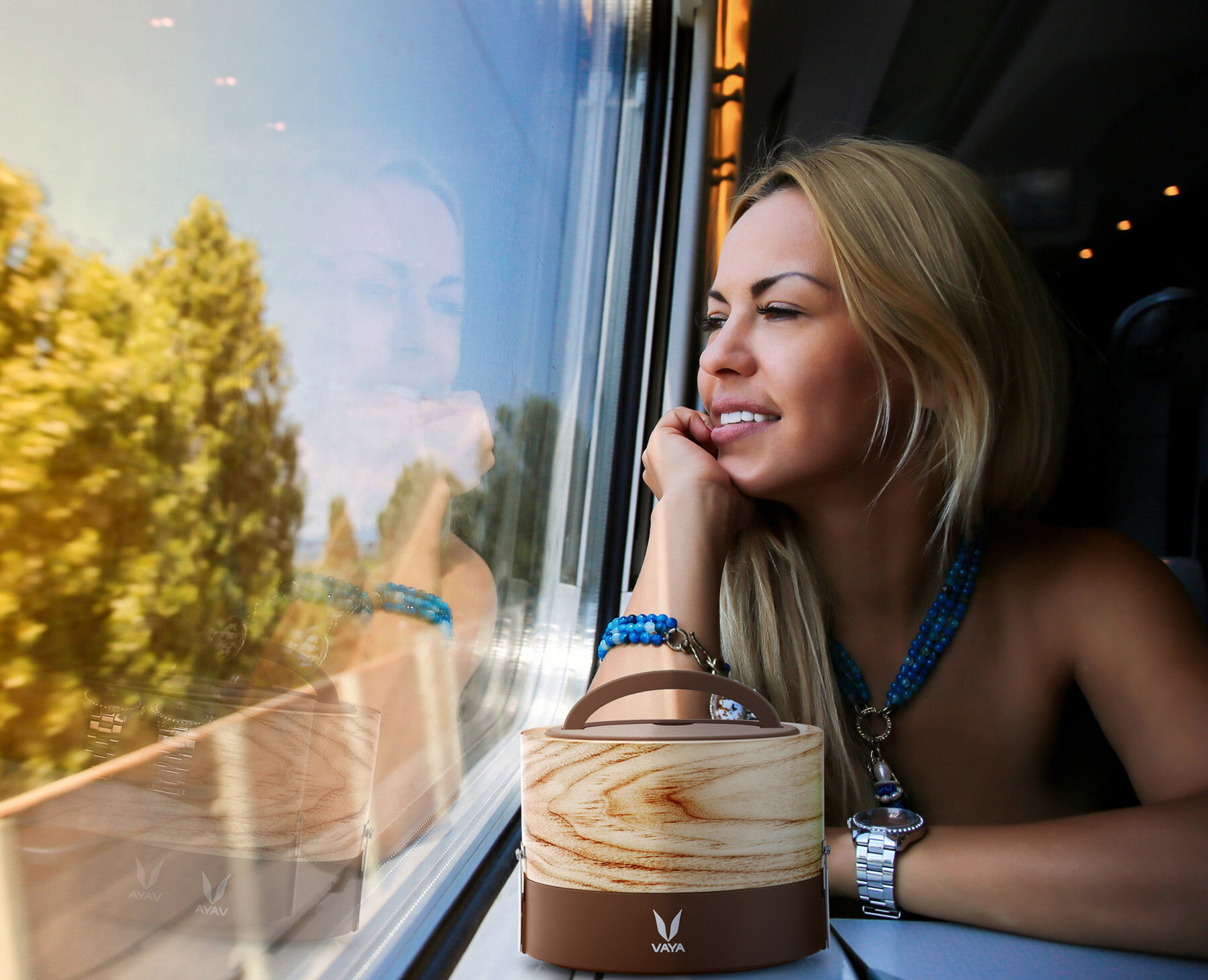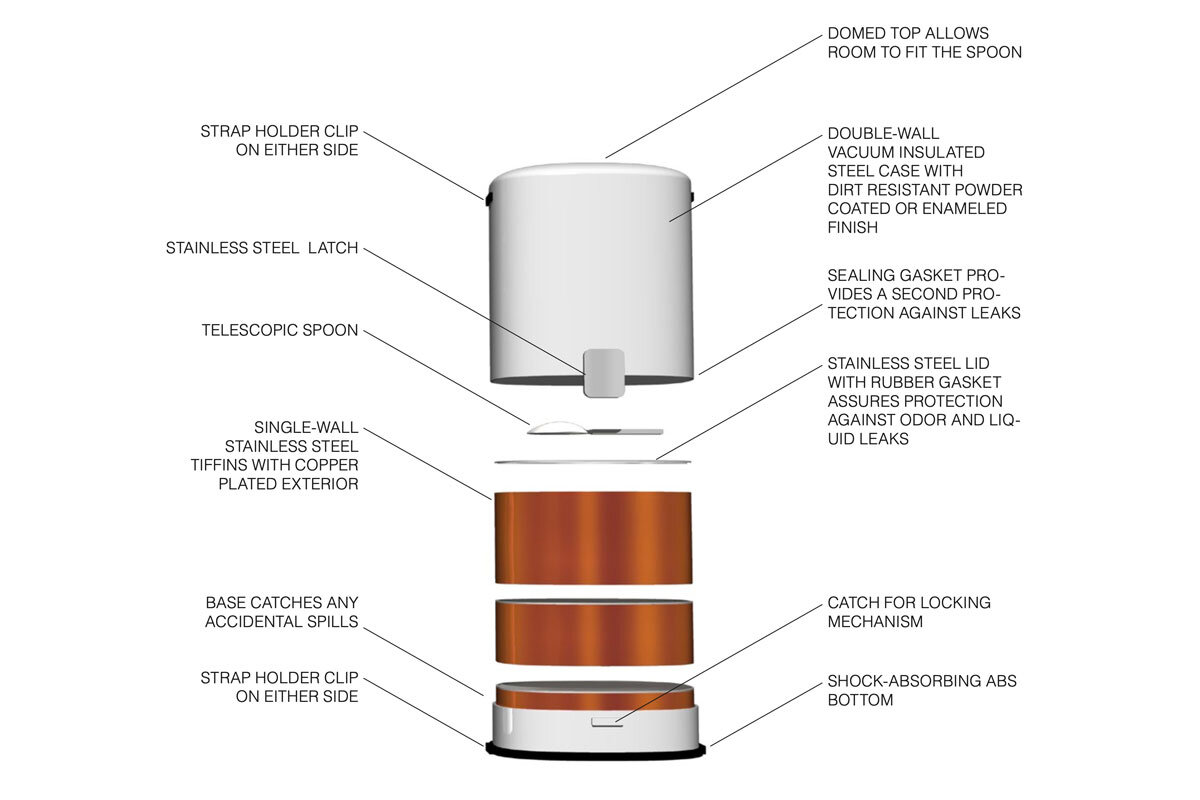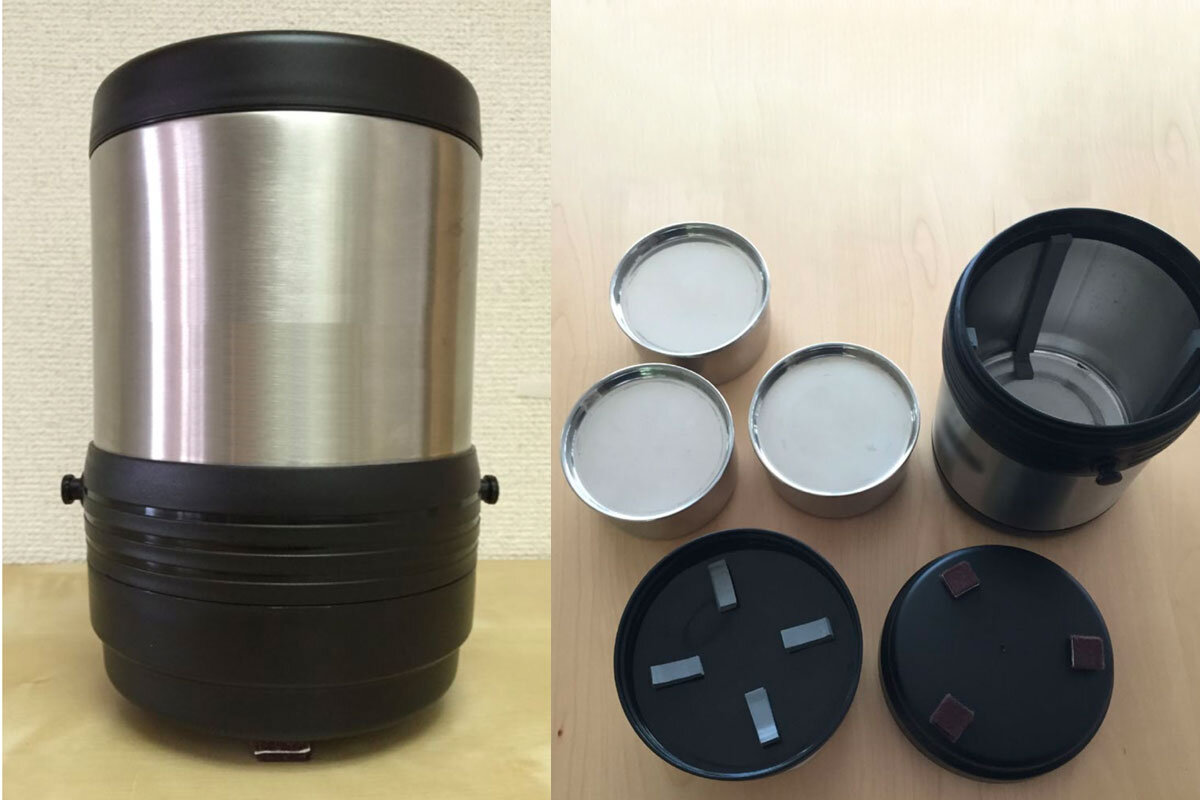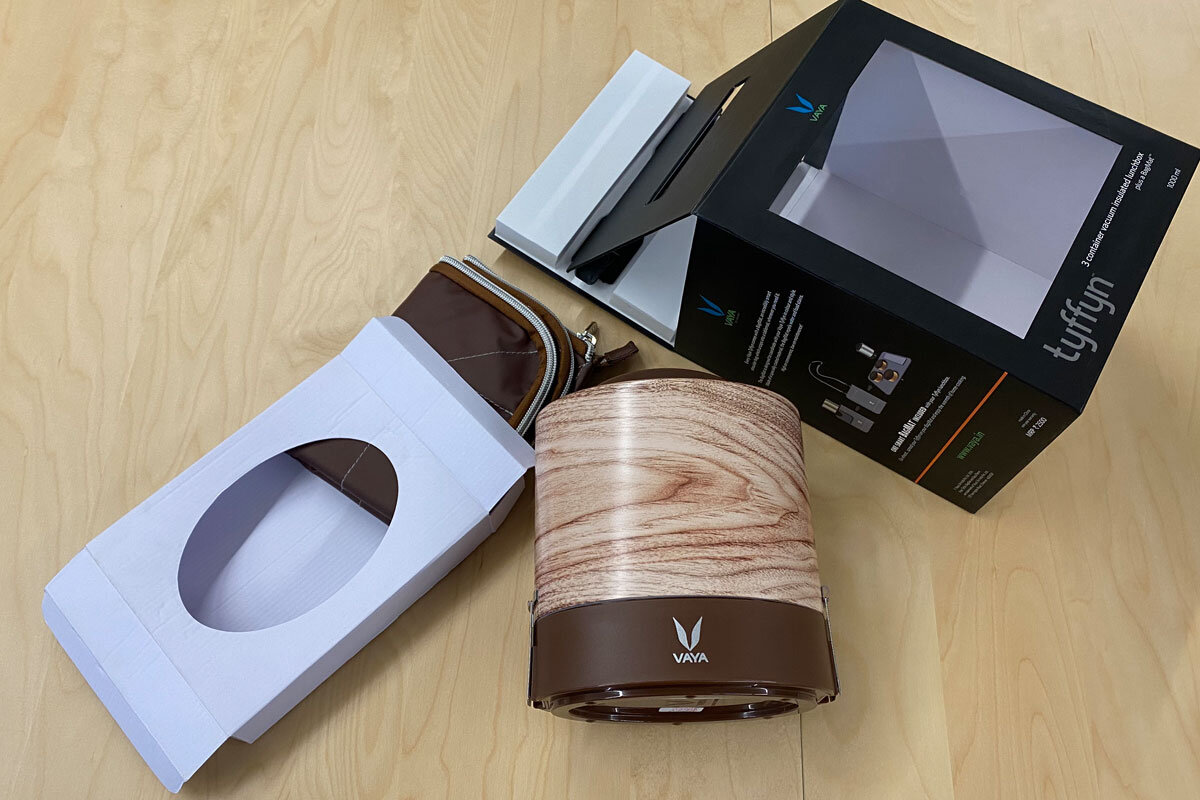Reinventing the way India carries its food.
Specifically designed for Indian food and culture, the Tyffyn lunchbox is by far the most technologically advanced ever. Introduced by the manufacturing startup Vaya, the Tyffyn lunchbox has taken India by storm, rapidly selling hundreds of thousands of pieces, propelling Vaya into a manufacturing reality, and turning the Vaya brand into a household name virtually overnight. This is how the power of design transformed a utilitarian cultural icon into the ultimate object of desire in contemporary India.
My passion for food
My mother was an excellent cook, and after I moved from Italy to the USA to attend university, I quickly realized I had to learn how to cook or my life would never taste the same. I would phone my mother in the evening, her lunchtime, so I could ask her the recipe for my dinner, and learn her cooking secrets.
Throughout college, I waited tables in high-end restaurants. There I had a chance to learn how the comfort of a chair, the light of a candle, the weight of a fork, the sounds of the glassware… how they all contribute to the dining experience. My first roommate was a masterful chef, the second was a skilled caterer, and the last was one of the world’s top food stylists. From them I learned about freshness, balancing flavors, packing and moving food, and how a delicacy can be tasted with our eyes, as much as with our palate.
Food and cuisine are in my blood, and after design they are the biggest passion in my life. When the CEO of Vaya, a then-unknown manufacturing startup, contacted me to work on their first product, a high-tech lunchbox for the Indian market, I saw the ultimate design project.
Moving Food
Food is culture, but in the cultures I was familiar with, people don’t eat on-the-go the same food as they do at home. This is not true in India, where like in Japan, many people prefer bringing to work or school a home-cooked meal, which is pretty much the same as they would eat at home. Both cultures have lunchboxes specifically designed for their domestic food: the “Bento” is popular in Japan, while the “Tiffin” is ubiquitous in India.
Research showed a fully developed Japanese bento-box market, with a wide range of culturally appropriate products also offered by international manufacturers, and a stagnating Indian tiffin market, dominated by few domestic brands, and lacking competition, sophistication, and innovation.
While the Indian market offered a great commercial opportunity, its Japanese counterpart offered me a great source of inspiration.
The predilection for home-cooked meals is so strong in India that in every household there are on average more lunchboxes than people.
Most people in India take a packed lunch with them as they leave in the morning. The custom is so widespread that in Mumbai you will find the Dabbawalas (literally translated as “lunchbox carriers”), a truly unique service that picks up and delivers hundreds of thousands of lunch boxes every morning, from a home or a food service to a workplace; the empties are delivered back on the same day in the afternoon. Their low-tech delivery system is so accurate that it has been the subject of many research studies, and their model has inspired scores of delivery services.
Indian home-cooked meals are made of mostly stewed, heavily spiced dishes, served with rice or flatbread. Since food is considered almost sacred in India, microwave ovens are not very popular. Meanwhile, stews are the perfect food to keep warm and moist for hours, as they develop flavor and consistency over time.
The combination of hot, moist, and spicy means Indian lunchboxes need to be thermally insulated, as well as leak and odor-proof. Indians also favor stainless steel tableware over Western pottery. These specific cultural requirements make imports a far second to the culturally appropriate domestic tiffins, especially if thermally insulated.
Closing The Loop
The tiffin lunchbox is common to India and the surrounding regions that share much of its culture and cuisine. It is a set of stacked round containers, with a lid, secured by a clamping harness connected to a handle. It is usually cylindrical when assembled, sometimes in the shape of a truncated cone, which allows containers of different sizes.
The origin of the tiffin is lost in time and is the subject of many tales. Its recent development went from enameled and colorfully decorated steel containers to utilitarian stainless steel assemblies, to the use of a vacuum-insulated outer shell to keep the meal warm (think of carrying your soup in a thermos bottle and you get the idea.)
While taking the most recent thermally insulated version to the next development level, my design also reintroduces the decorative beauty of the traditional enameled tiffins. A cleverly designed accessory and slick packaging complete the experience.
Full of innovation
The product development criteria provided by Vaya for the Tyffyn lunchbox were very strict in addressing all of the shortcomings of the existing offerings, employing conventional vacuum-insulated stainless steel technology, and in focusing on performance, convenience, and sophistication.
The final design features increased heat performance for hotter lunches, a compact body to fit more easily into a bag, added flexibility in meal size and portion management, reduced spills and odors, and contemporary sophisticated aesthetics. Keep reading to find out how all of this was achieved.
VacuTherm™ Technology
Performance for a tiffin lunchbox translates into keeping Indian food warmer. The key feature of the Tyffyn lunchbox is its unique upside-down approach, designed to trap the heat inside the vacuum-insulated stainless steel shell. This makes it far far more efficient than the traditional bucket designs, where most of the heat is lost through the non-vacuum insulated plastic lid. We call this innovative approach VacuTherm™ Technology
Slim Body
We designed the Tyffyn lunchbox with a smooth and compact oval body which allows it to easily slide in and out of a bag, reduces bulging, and gives it its distinct, contemporary look.
Collapsible Handle
To make it even more slick and compact, we designed the handle of the Tyffyn lunchbox so that it can fold and disappear inside the lid.
Pressurizing Latches
The latches of the Tyffyn lunchbox are designed to use the outer shell as a clamping device, locking the inner food containers in place, and applying pressure on their lids and gaskets to provide a perfectly sealed environment.
Integrated Gaskets
Leaks and odors are reduced by integrated gaskets which are directly molded into the lid and base, avoiding the need to remove them when washing the Tyffyn lunchbox, thus adding convenience and avoiding the annoyance of lost parts.
Copper Plated Stainless Steel Containers
In Indian culture, stainless steel is the preferred material for tableware, the most luxurious kind being plated with copper. That is how the material and finish for the inner food containers were selected, while the combination of oval shape and copper finish gives them their unique gourmet look.
Finger Grips
Piping hot food makes steel vessels very hard to handle with bare hands. That is why we designed the inner containers of the Tyffyn lunchbox with special heat-insulated finger grips that allow you to hold them when hot.
Partitions
Each of the inner food containers of the Tyffyn lunchbox comes with a BPA-free plastic partition that allows you to split it into halves, allowing greater flexibility in meal management. The inner partitions feature the same integrated gasket found in the container’s lid and in the lunchbox base.
Three Sizes
Sized for appetites large and small, the Tyffyn lunchbox is currently available in three sizes: 600ml (20.3 Oz) with two food containers, 1000ml (33.8 Oz) with three food containers, and 1300 ml (44 Oz) with four food containers.
Lots of Colors and Graphics
The Tyffyn lunchbox is available in plenty of shell/base color combinations, but its most prominent aesthetic feature is its ability to beautifully display surface graphics, whether for mere decoration, licensing, or promotional applications.
Smartly Accessorized
A clever lunchbox needs a smart carrying bag. The BagMat™ was designed as the perfect companion to the Tyffyn lunchbox: It is a lunch bag that unzips, opens up completely, and turns into a table mat. Stain repellent, easy to wash, and equipped with a convenient detachable pocket for your cutlery. Its thermal insulation means Indian food can stay even warmer when a Tyffyn lunchbox is carried inside a BagMat.
Packaged for all occasions.
For the Vaya Tyffyn lunchbox, we designed an elegant display box for retail purposes and a rugged ecofriendly carton for e-commerce. Both packaging options are designed to be flexible and to accommodate any of the color or graphics variations, making inventory easier to manage, and avoiding the need for redesign when a new style is introduced.
Elegant Retail Packaging
The retail option features a two-sided approach that doubles as a simple POP display: on one side is a clear display window boldly showing the product, while on the opposite side is a clear description of its features. The retail box also includes a folded BagMat fitted into the bottom.
Ecofriendly E-commerce Packaging
The Tyffyn lunchbox e-commerce packaging solution is efficient, low-cost, recycled/recyclable, with simple, bold, single-color graphics. The e-commerce packaging does not include the BagMat.
Design Process
It took two and a half years to get from the start of the research phase to the launch of the Vaya Tyffyn in August 2016. Its development extended well beyond its launch, with constant improvements that continue even today. This section shows a very simplified and compressed version of the process that took me and the Vaya team from identifying a market opportunity to the launch of a revolutionary product.
1. Research
Indian culture research mood board
I believe that any design project is only as good as its research, and given my lack of familiarity with Indian culture, its cuisine, and the product I was asked to design, this project was going to need a lot of research. In addition to collecting and studying dozens of existing products, I learned about Indian culture, its cuisine, and the Indian dining experience.
Indian Tffin product research
This is when I learned what an iconic element of Indian culture the tiffin lunchbox is. Everyone grows up with it, and most adults still use it daily. You will find several tiffin lunchboxes in most households, for different people, needs, or occasions. There are thousands of product options, and making our product the best in this category was going to be a real challenge.
Indian housewares store
When it comes to housewares and tableware, stainless steel’s durability, easy cleaning, and resistance to staining make it by far India’s favorite material for cookware, tableware, and of course lunchboxes.
Testing competitor products for heat leakage
In studying competitors’ products, as well as other related products such as soup jars and insulated bottles, it became evident that in all of them, the lid was the weakest spot for heat retention, especially at its attachment to the vacuum-insulated steel body. As heat rises, this also means the weakest spot the spot where the heat tends to travel.
2. Design Concept
Early sketches for Vaya’s Tyffyn lunchbox
Bottles and jars are filled with liquids, so it makes sense for the lid to be at the top, but a vacuum-insulated tiffin carrier has inner containers, which means the outer lid is not primarily responsible for containment. The lid could be placed at the bottom of the insulated container, trapping the heat inside with the most efficient component: the vacuum-insulated steel shell.
Early rendering illustrating the original concept for Vaya’s Tyffyn lunchbox
This represented an opportunity that would, at least in theory, make our tiffin carrier more heat-efficient, but it would also give our solution a very distinctive look.
Other details addressing the weaknesses of the competitor’s products were studied as well. The luxurious copper-plated dining containers were also part of the original concept.
Renderings showing outer appearance
The original concept of Vaya Tyffyn lunchbox already had an oval body, which would add to its unique look, while allowing it to fit more easily into a bag.
Early color and finish studies explored how the product could be tailored to different audiences.
Original presentation of the BagMat lunch bag concept
The first round of concepts also explored opportunities for accessories. The BagMat, the Vaya Tyffyn lunchbox companion carrying bag that opens into a placemat, was one of those accessories.
Original dimensions and volume studies for the Vaya Tyffyn lunchbox
Finally, preliminary technical studies confirmed our volumes and dimensions were aligned with our objectives.
The first concepts explored five different directions for the lunchbox, from which the Vaya Tyffyn lunchbox upside-down approach was selected.
To date, one more of the original lunchbox concepts, the Vaya Preserve containers, has also gone into production.
3. Design Development
A competitor’s vacuum insulated tiffin lunchbox rigged for testing
After the initial design was selected for development, the next step was a proof of concept: a confirmation that the upside-down approach would indeed allow a better heat performance.
Several units were modified for this test, to find out how different details would affect the heat retention. The test units were turned upside-down, and rigged using different materials, base designs, and inner details.
Monitoring temperature variations during testing
The units were tested side-by-side with an original control unit, measuring retention over different periods and in varying conditions. All of the modified upside-down units performed better than the original, we were definitely on the right track.
Paper studies of the inner containers
Starting from the inner food containers and working our way out, shapes and volumes for the Vaya Tyffyn lunchbox were studied and finalized using quick paper mockups.
Modular system based on inner containers
Two volumes of the inner containers, 300 ml, and 400 ml, turned into modules for a system that would allow the production of the Tyffyn lunchbox with incremental capacities of 100ml, through the development of only the vacuum-insulated steel shell, while sharing all other components.
Foam and paper mock-ups of the outer shell
Outer dimensions, proportions, and details such as the handle of the Vaya Tyffyn lunchbox were also first validated through quick foam and paper mock-ups.
Approach to the folding lid assembly for the Vaya Tyffyn lunchbox
The design was then further refined in digital 3D models from the handle on top of the Vaya Tyffyn lunchbox…
Approach to the assembly of the heat-insulated base of the Vaya Tyffyn lunchbox
… to the base at its bottom.
3D printed and painted appearance model of the Vaya Tyffyn lunchbox, and handmade prototype of the Vaya BagMat.
The Vaya Bagmat carrying case also went through a simpler but similar process, parallel to the development of the Vaya Tyffyn lunchbox.
The whole process led to the production of a 3D printed, painted model for all the components of the Vaya Tyffyn lunchbox and a working prototype of Vaya BagMat, all produced in our workshop.
Prototypes in hand, we headed for a crucial manufacturing partner and investor meeting in Hong Kong.
4. Prototyping and Manufacturing
Revisions to the design of the handle friction lock
We are now ready to move towards the first working prototypes of the Vaya Tyffyn lunchbox, revisions and improvements continue throughout the prototyping process to address manufacturing challenges and usability issues.
Plating and finish samples for the Vaya Tyffyn outer shell and inner containers
All parts, materials, and finishes for the Vaya Tyffyn lunchbox are thoroughly tested according to user scenarios.
Decorative and promotional surface graphics on the outer shell of the Vaya Tyffyn lunch box
3D renderings explore possibilities for surface graphics, and decorative as well as promotional and licensing applications of the Vaya Tyffyn lunchbox.
Vaya logo design
Meanwhile, parallel to the product and accessories, our graphic design team is also developing the Vaya visual brand, website, and communication package for the launch.
Vaya Tyffyn launch styles selection
Three styles are selected for the launch of the first 1000 ml Vaya Tyffyn lunchbox, including two printed patterns. More samples are produced, this time to evaluate printing options, which requires more testing of the finishes.
Vaya BagMat final design and testing
The Vaya BagMat lunch bag is also going through the same development process as the Vaya Tyffyn lunchbox, sampling, prototyping, and testing.
Vaya Tyffyn retail packaging prototype
More prototyping and testing for the packaging as well, everything needs to be perfect for the Vaya Tyffyn lunchbox.
Vaya brand and Vaya Tyffyn official launch event
Until everything is finally ready for the Vaya Tyffyn lunchbox launch event in Bangalore. A new brand is born.
Related Projects:
Vaya Drynk tumbler product design
